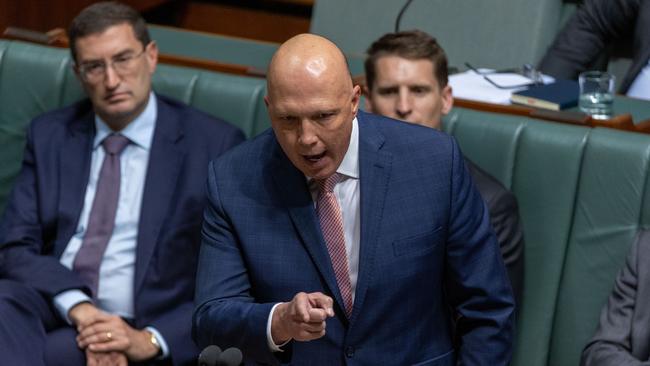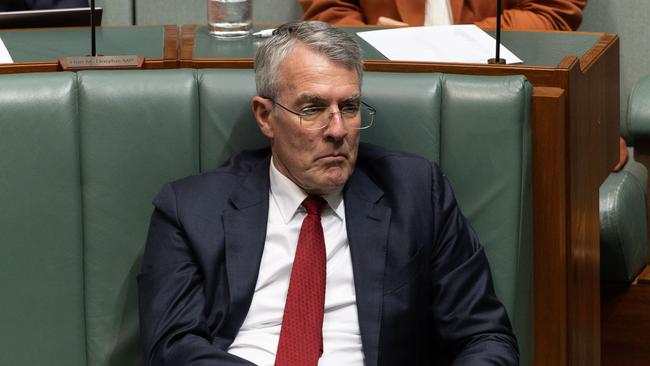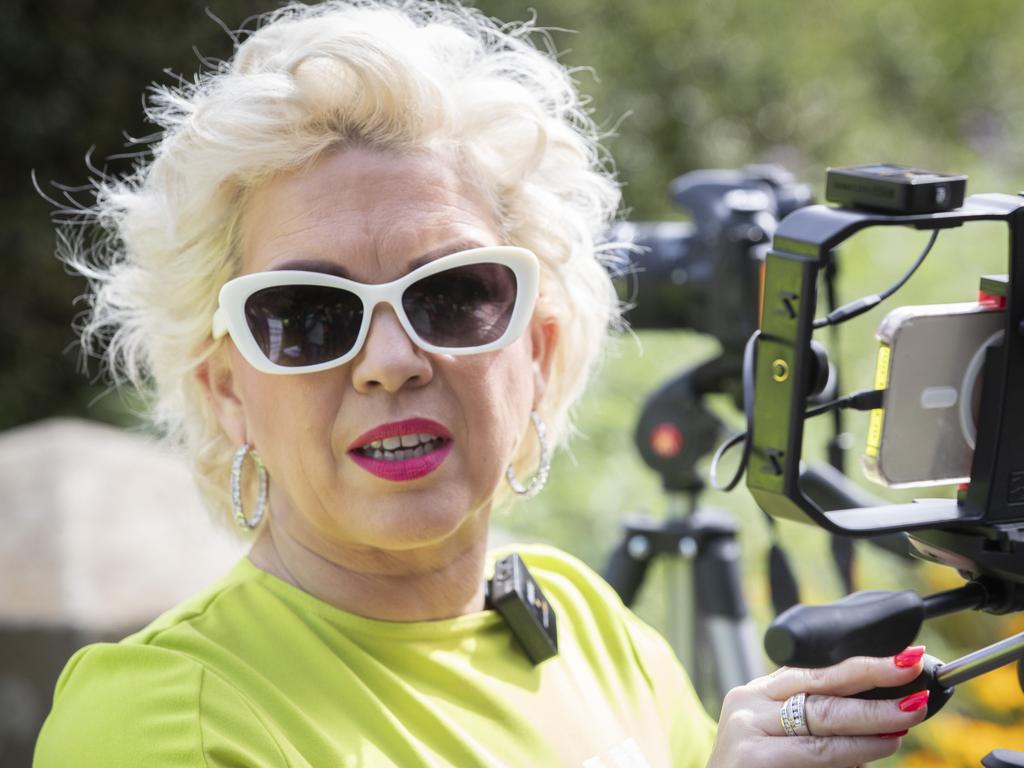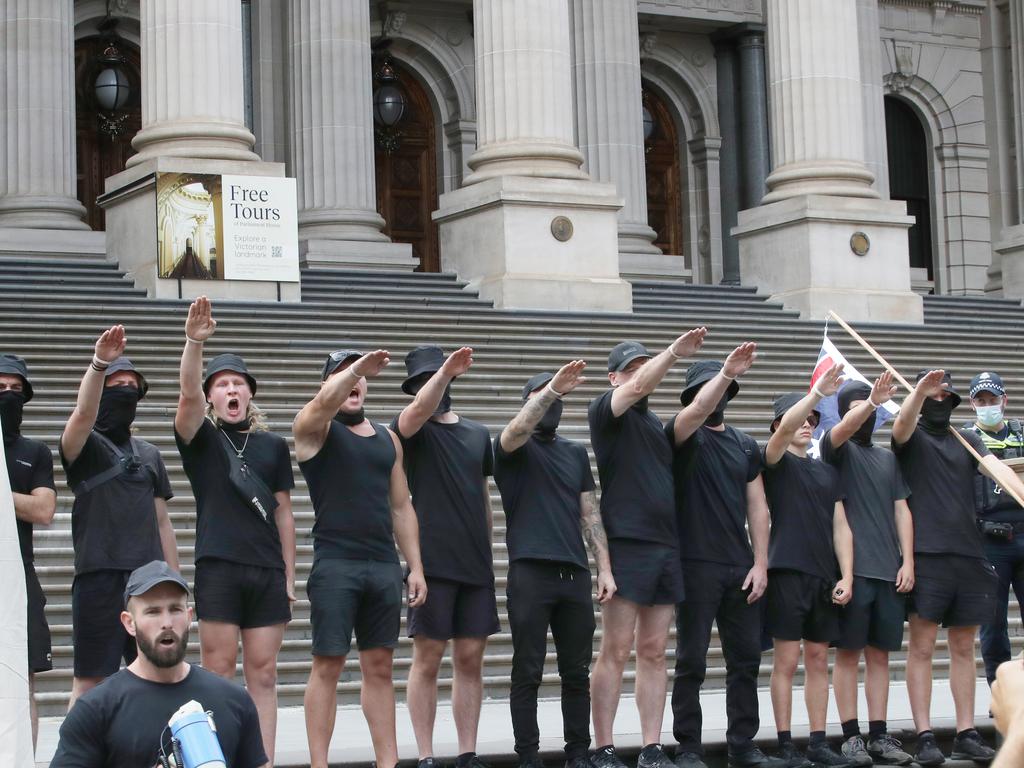
What may have seemed like a good idea at the time on Tuesday when the Attorney-General accused the Opposition Leader of breeding “bigotry and hatred” though his “silence” on a Nazi demonstration in Melbourne has turned into two days of painful defence of a breach of “any reasonable standard”.
Early on Wednesday morning, the Labor government was forced to vote against a Coalition proposal to immediately introduce a bill banning glorification of Nazis and Nazi symbols after Dutton called Dreyfus’s bluff over his egregious slur.
This was despite a promise 10 months ago that the new Labor government would bring in laws to ban Nazi symbols. What’s more, the proposal of opposition legal affairs spokesman Julian Leeser built on a request Dutton made as home affairs minister to a committee that included Dreyfus and was rejected because it didn’t have time.

In an attempt during the Aston by-election campaign to draw Dutton into a Victorian political fight over a Nazi protest in Melbourne, Dreyfus said on Tuesday: “What did we have from those opposite? In particular, their leader? Complete silence. We all know bigotry and hatred breed in silence. Who is the Opposition Leader afraid of offending? This speaks volumes about the leadership qualities of the Leader of the Opposition. And Australians will take note.”
In response, Dutton challenged Anthony Albanese and Dreyfus to bring in laws to ban the use of Nazi symbols which he would support and called on the PM to produce his own statement on the Nazi protest.
In supporting the move to ban Nazi symbols, Dutton said: “Nazi symbols are no ordinary symbols. They must be condemned wherever and whenever they are found and displayed. Today, we must stand united as a parliament”.
The Labor response in parliament to a challenge to introduce the bill was to reject the proposal on procedural grounds. But after question time, the Coalition asked the Speaker to review what Dreyfus said and order him to withdraw the remarks and apologise.
Dick said it was an incredibly serious issue and he understood how sensitive claims involving Nazism were. Then, as the Speaker started to argue that the language used was not “unparliamentary”, Coalition MPs began to walk out as he spoke – a damning parliamentary rebuke for a Speaker – and virtually emptied the Coalition benches.
Labor lost another parliamentary sitting day thanks to Dreyfus’s offensive and politically inept intervention.








Mark Dreyfus’s atrocious Nazi slur against Peter Dutton has distracted and dragged down the Albanese government for a second day and even caused the first parliamentary walkout in years in protest against the new Speaker, Milton Dick.